Chronic Fatigue Syndrome/Myalgic Encephalomyelitis (CFS/ME) is a debilitating condition characterized by extreme fatigue, sleep issues, cognitive impairment, pain, and dizziness. Recent research suggests inflammation plays a crucial role in CFS/ME, with changes in inflammatory markers corresponding to symptom severity. Anti-inflammatory herbs may help manage some CFS/ME symptoms by reducing inflammation in the body.
Here are 10 anti-inflammatory herbs that show potential benefits for CFS/ME:
| Herb | Key Compounds | Potential Benefits |
|---|---|---|
| Turmeric | Curcumin | May reduce fatigue, pain, inflammation |
| Ginger | Gingerol, shogaol | May ease muscle pain, nausea, inflammation |
| Cinnamon | Cinnamaldehyde | May regulate blood sugar, reduce inflammation |
| Garlic | Allicin, diallyl sulfides | May support immunity, reduce inflammation |
| Cayenne | Capsaicin | May relieve pain, improve circulation |
| Black Pepper | Piperine | May enhance absorption of other herbs/supplements |
| Rosemary | Carnosic acid, rosmarinic acid | May reduce fatigue, pain, inflammation |
| Green Tea | Epigallocatechin gallate (EGCG) | May provide antioxidant, anti-inflammatory benefits |
| Ashwagandha | Withanolides | May reduce stress, fatigue, inflammation |
| Echinacea | Alkylamides, polysaccharides | May boost immunity, reduce inflammation |
When adding these herbs to your routine, start with small doses and gradually increase as tolerated. Consult your healthcare provider, especially if you have medical conditions or take medications, as some herbs may interact with certain drugs or cause side effects. While herbs alone may not cure CFS/ME, they can be a helpful addition when combined with other lifestyle changes and treatments recommended by your doctor.
Related video from YouTube
1. Turmeric
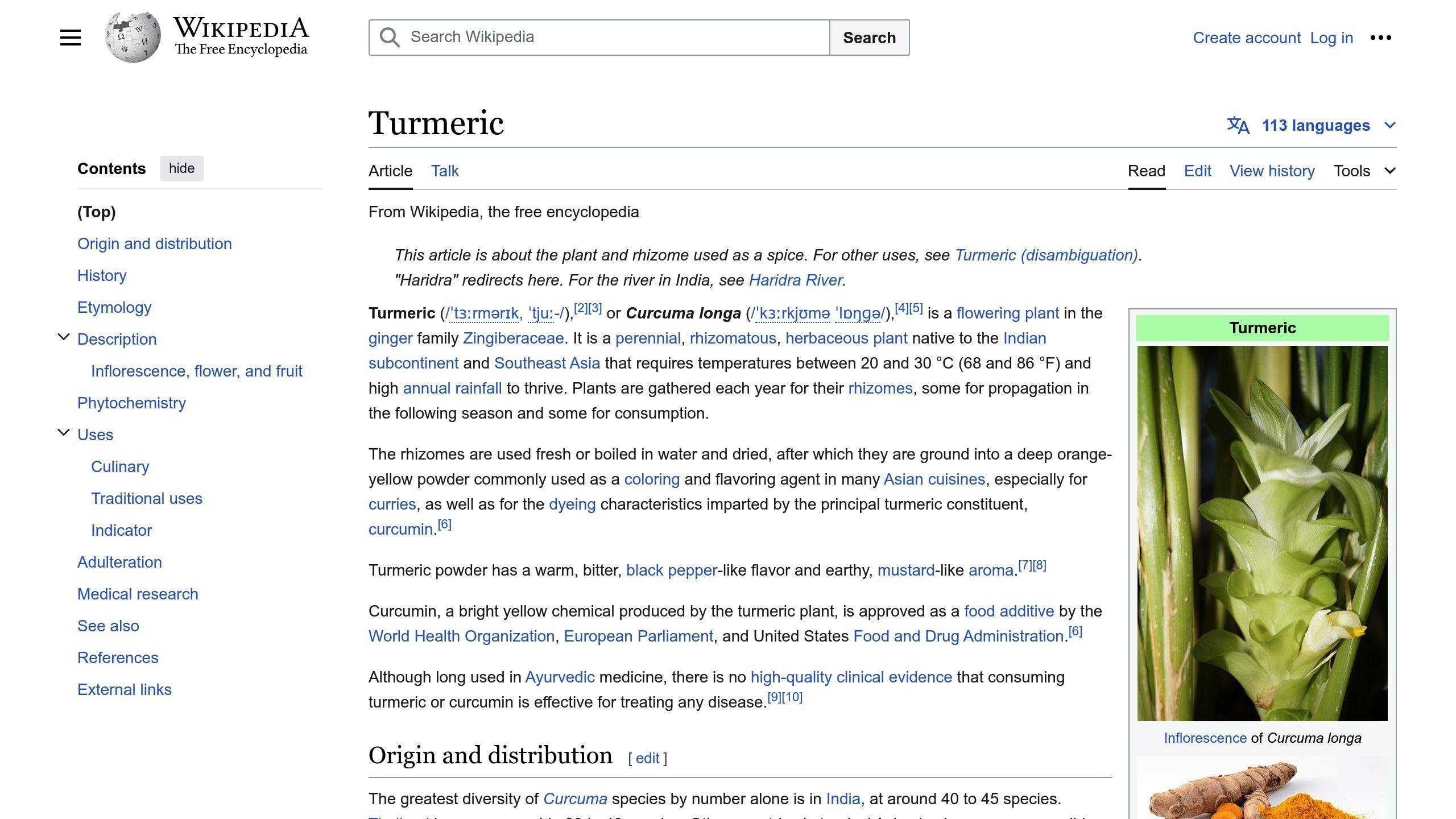
What It Contains
Turmeric has curcumin, a compound that reduces inflammation in the body. Curcumin blocks NF-κB, a molecule that triggers genes causing inflammation.
How It May Help CFS/ME
Studies show curcumin may ease some CFS/ME symptoms by lowering inflammation. Curcumin supplements can significantly decrease inflammatory markers like:
- Interleukin-6 (IL-6)
- High-sensitivity C-reactive protein (hs-CRP)
- Malondialdehyde (MDA)
Curcumin also has pain-relieving effects similar to over-the-counter anti-inflammatory drugs like ibuprofen and diclofenac. This may help with pain from conditions like osteoarthritis, which involves joint inflammation.
Dosage
While there’s no set dosage for CFS/ME, studies found 500-2,000 mg of curcumin per day can reduce inflammation. However, turmeric only contains about 3% curcumin by weight, so higher turmeric doses may be needed.
To improve curcumin absorption, take it with black pepper, which contains piperine. Piperine can increase curcumin absorption by up to 2,000%.
Precautions
Turmeric is generally safe in moderate amounts, but high doses may cause:
- Nausea
- Diarrhea
- Stomach upset
Turmeric may also interact with some medications like blood thinners. Consult a healthcare provider before taking turmeric supplements, especially if you have any medical conditions.
2. Ginger

What’s in Ginger?
Ginger contains over 100 active compounds. The main ones that fight inflammation are:
- Gingerol: The primary anti-inflammatory compound
- Shogaol
- Zingiberene
- Zingerone
How Ginger May Help CFS/ME
Research shows ginger can ease some CFS/ME symptoms by reducing inflammation:
| Benefit | Details |
|---|---|
| Lowered Inflammation Markers | A review of 16 studies found that taking 1,000-3,000 mg of ginger daily for 4-12 weeks significantly lowered inflammatory markers like C-reactive protein (CRP) and tumor necrosis factor-alpha (TNF-α). |
| Reduced Joint Pain and Stiffness | In people with osteoarthritis, ginger supplements reduced inflammatory markers like TNF-α and interleukin-1 beta (IL-1β), as well as joint pain and stiffness. |
| Similar Effects to Over-the-Counter Anti-Inflammatories | Ginger’s anti-inflammatory effects may be comparable to over-the-counter anti-inflammatory drugs like ibuprofen. |
Dosage
While there’s no set dosage for CFS/ME, studies suggest taking 1,000-3,000 mg of ginger daily can help reduce inflammation.
Keep in mind that ginger root only contains around 3% gingerol by weight, so higher doses of ginger may be needed.
Precautions
Ginger is generally safe when consumed in moderate amounts, but high doses may cause:
- Nausea
- Diarrhea
- Stomach upset
Ginger may also interact with certain medications like blood thinners. Consult a healthcare provider before taking ginger supplements, especially if you have any medical conditions.
3. Cinnamon
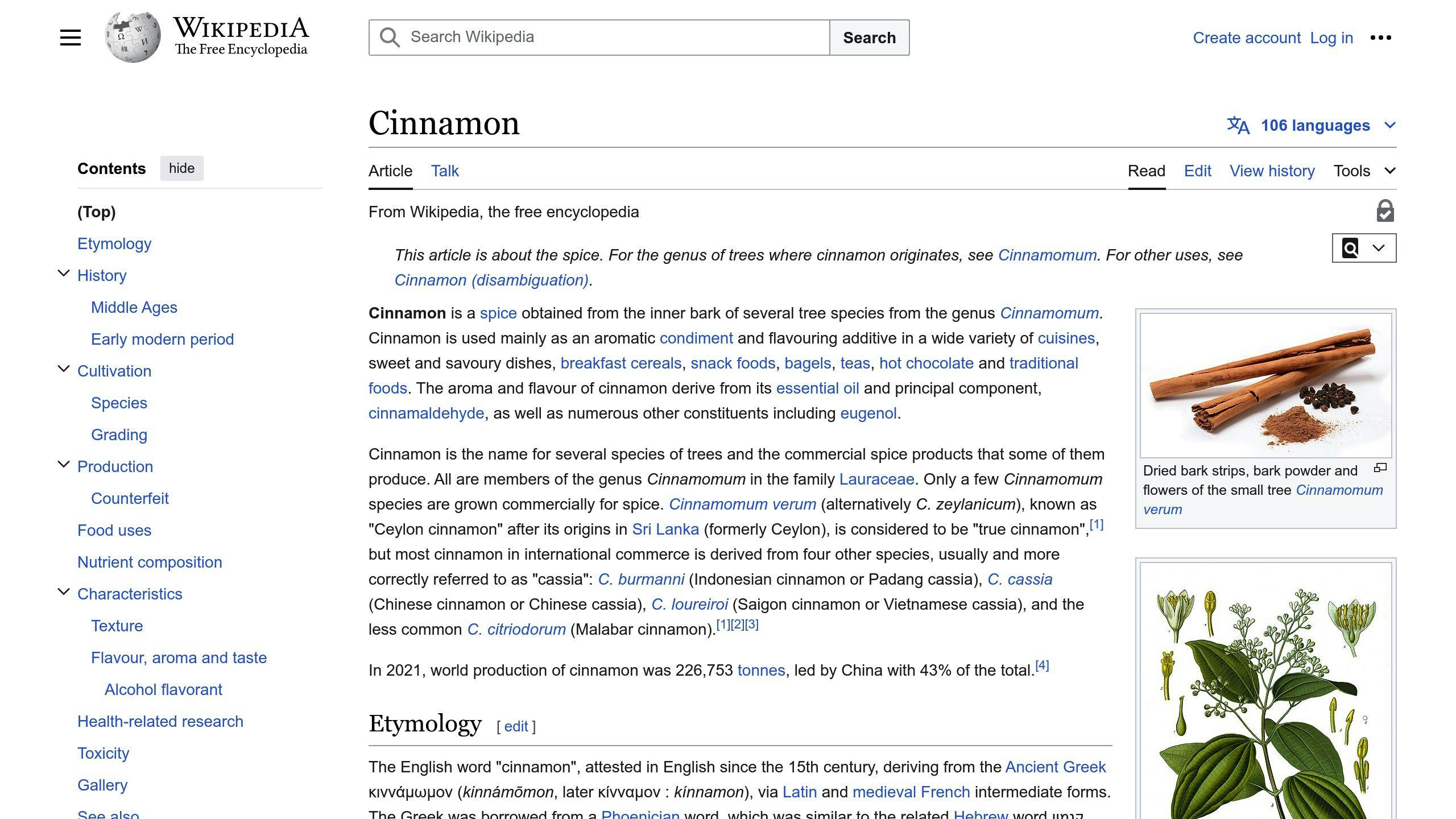
What’s in Cinnamon?
Cinnamon contains these key compounds that fight inflammation:
- Cinnamaldehyde: The main active compound, giving cinnamon its flavor and aroma. It has antioxidant and anti-inflammatory effects.
- Cinnamic Acid: An organic compound that reduces inflammation and oxidative stress.
- Polyphenols: Antioxidants that neutralize free radicals and prevent inflammation.
How It May Help CFS/ME
Research shows cinnamon may ease some CFS/ME symptoms by lowering inflammation:
| Benefit | Details |
|---|---|
| Reduced Inflammation Markers | Cinnamon supplements can significantly lower inflammatory markers like C-reactive protein (CRP) and tumor necrosis factor-alpha (TNF-α). |
| Improved Antioxidant Status | Cinnamon is rich in antioxidants that protect the body from oxidative stress and inflammation, which are common in CFS/ME. |
| Potential Pain Relief | The anti-inflammatory properties of cinnamon may help reduce joint pain and stiffness linked to CFS/ME. |
Dosage
While there’s no set dosage for CFS/ME, studies suggest taking 1-3 grams (1,000-3,000 mg) of cinnamon daily to experience its anti-inflammatory benefits.
Precautions
Cinnamon is generally safe in moderate amounts, but high doses may cause:
- Nausea
- Diarrhea
- Stomach upset
Cinnamon may also interact with certain medications like blood thinners. Consult a healthcare provider before taking cinnamon supplements, especially if you have any medical conditions.
4. Garlic

Anti-inflammatory Compounds
Garlic contains these key compounds that fight inflammation:
- Allicin: The main active compound, formed when garlic cloves are crushed or chopped. Allicin has strong anti-inflammatory and antioxidant effects.
- Diallyl Sulfides: Compounds like diallyl disulfide and diallyl trisulfide that can block inflammatory enzymes and pathways.
- Quercetin: An antioxidant that can reduce inflammation and oxidative stress.
Benefits for CFS/ME
Research suggests garlic may help ease some CFS/ME symptoms through its anti-inflammatory effects:
| Benefit | Details |
|---|---|
| Reduced Fatigue | Studies show garlic supplements can boost exercise endurance and lower fatigue in animal models. |
| Improved Antioxidant Status | Garlic’s antioxidants help neutralize free radicals and oxidative stress, which contribute to inflammation and fatigue. |
| Potential Pain Relief | The anti-inflammatory properties of garlic may help reduce muscle and joint pain linked to CFS/ME. |
Recommended Dosage
While there is no set dosage for CFS/ME, studies suggest taking 600-1,200 mg of aged garlic extract daily for its anti-inflammatory and antioxidant benefits.
Possible Side Effects
Garlic is generally safe when consumed in food amounts, but high supplemental doses may cause:
- Breath and body odor
- Heartburn
- Upset stomach
- Allergic reactions (in some people)
Garlic may also interact with certain medications like blood thinners, HIV/AIDS drugs, and some cancer treatments. Check with your healthcare provider before taking garlic supplements, especially if you have any medical conditions.
5. Cayenne
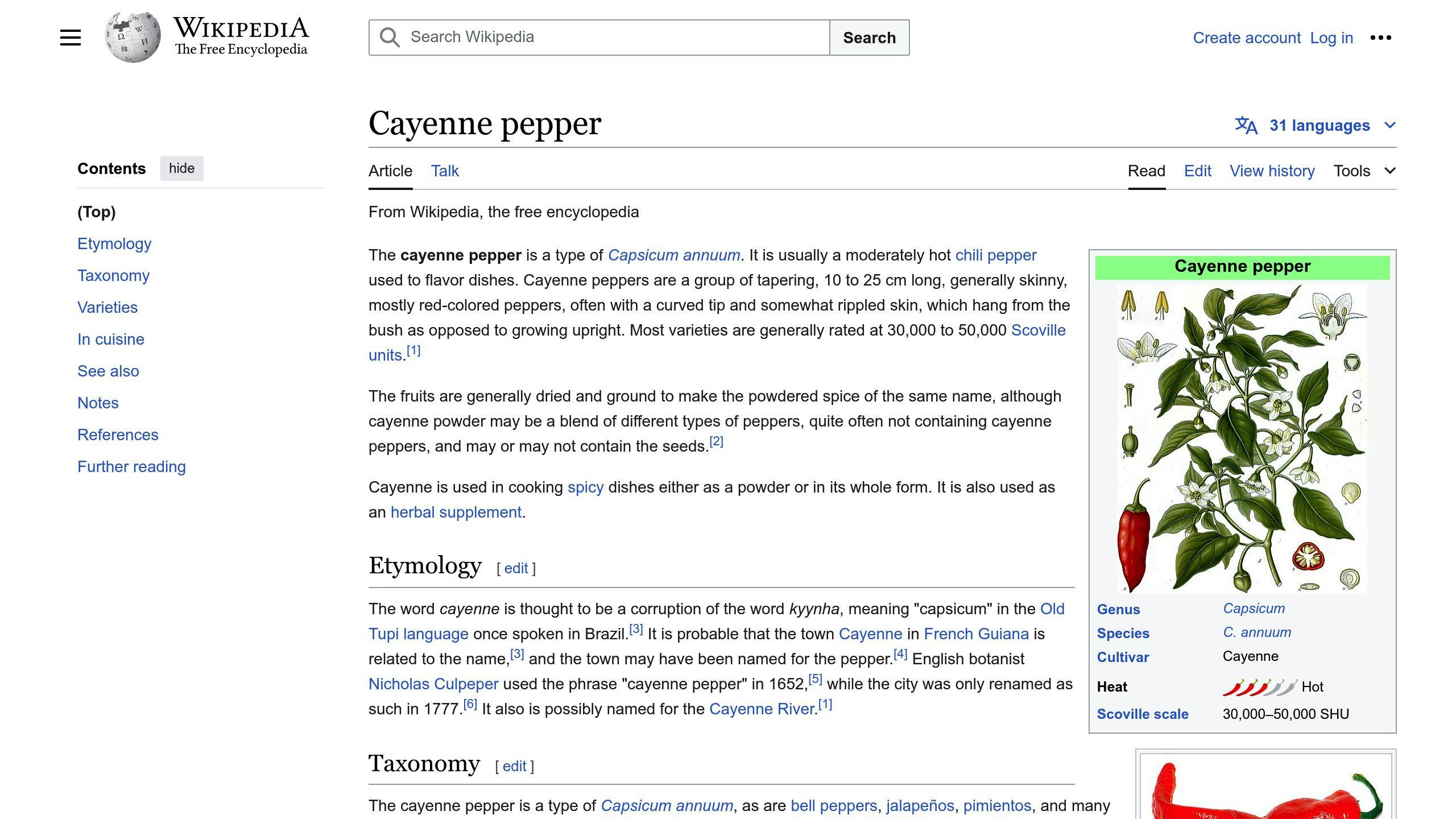
Key Compounds
Cayenne pepper contains these compounds that reduce inflammation:
- Capsaicin: The main compound giving cayenne its heat. It lowers inflammatory proteins like interleukin-6 (IL-6) and tumor necrosis factor-alpha (TNF-α).
- Carotenoids: Antioxidants like beta-carotene that neutralize free radicals and reduce oxidative stress and inflammation.
- Flavonoids: Polyphenolic compounds with antioxidant and anti-inflammatory properties.
Potential Benefits for CFS/ME
The anti-inflammatory effects of cayenne pepper may help with some Chronic Fatigue Syndrome/Myalgic Encephalomyelitis (CFS/ME) symptoms:
- Reduced Fatigue: By lowering inflammation, cayenne could combat the extreme tiredness experienced with CFS/ME.
- Pain Relief: The anti-inflammatory compounds in cayenne may ease muscle and joint pain linked to CFS/ME.
- Improved Circulation: Cayenne has been shown to enhance blood flow, which may deliver more oxygen and nutrients to affected areas.
Dosage
There is no set dosage for using cayenne pepper for CFS/ME. However, some general recommendations include:
| Form | Dosage |
|---|---|
| Capsules | 30-120 mg cayenne powder or 0.5-1 mg capsaicin daily |
| Powder | 1/4 – 1 teaspoon cayenne powder daily, added to food or drinks |
Start with a lower dose and gradually increase as tolerated.
Side Effects and Precautions
While generally safe in food amounts, high doses of cayenne pepper may cause:
- Stomach discomfort or irritation
- Heartburn or acid reflux
- Sweating
- Flushing or redness of the skin
Cayenne pepper may also interact with certain medications like blood thinners, ACE inhibitors, and some diabetes drugs. Check with your healthcare provider before taking cayenne supplements, especially if you have any medical conditions.
6. Black Pepper

Key Compounds
- Piperine: The main compound in black pepper. It has strong antioxidant and anti-inflammatory properties that may help reduce inflammation in the body.
Potential Benefits for CFS/ME
- Reduced Fatigue: By lowering inflammation, piperine may help combat the extreme tiredness and lack of energy associated with Chronic Fatigue Syndrome/Myalgic Encephalomyelitis (CFS/ME).
- Pain Relief: The anti-inflammatory effects of piperine could potentially ease muscle and joint pain linked to CFS/ME.
- Improved Nutrient Absorption: Piperine has been shown to enhance the absorption of other beneficial compounds like curcumin, which may provide additional anti-inflammatory benefits.
Dosage Recommendations
There is no established dosage for using black pepper specifically for CFS/ME. However, some general recommendations include:
| Form | Dosage |
|---|---|
| Ground Black Pepper | 1/4 – 1 teaspoon daily, added to food or drinks |
| Piperine Supplements | 5-20 mg daily |
Start with a lower dose and gradually increase as tolerated.
Possible Side Effects and Precautions
Black pepper is generally safe when consumed in food amounts, but high doses may cause:
- Stomach discomfort or irritation
- Heartburn or acid reflux
- Interactions with certain medications
Consult with your healthcare provider before taking black pepper or piperine supplements, especially if you have any medical conditions or are taking medications.
sbb-itb-cf04d29
7. Rosemary
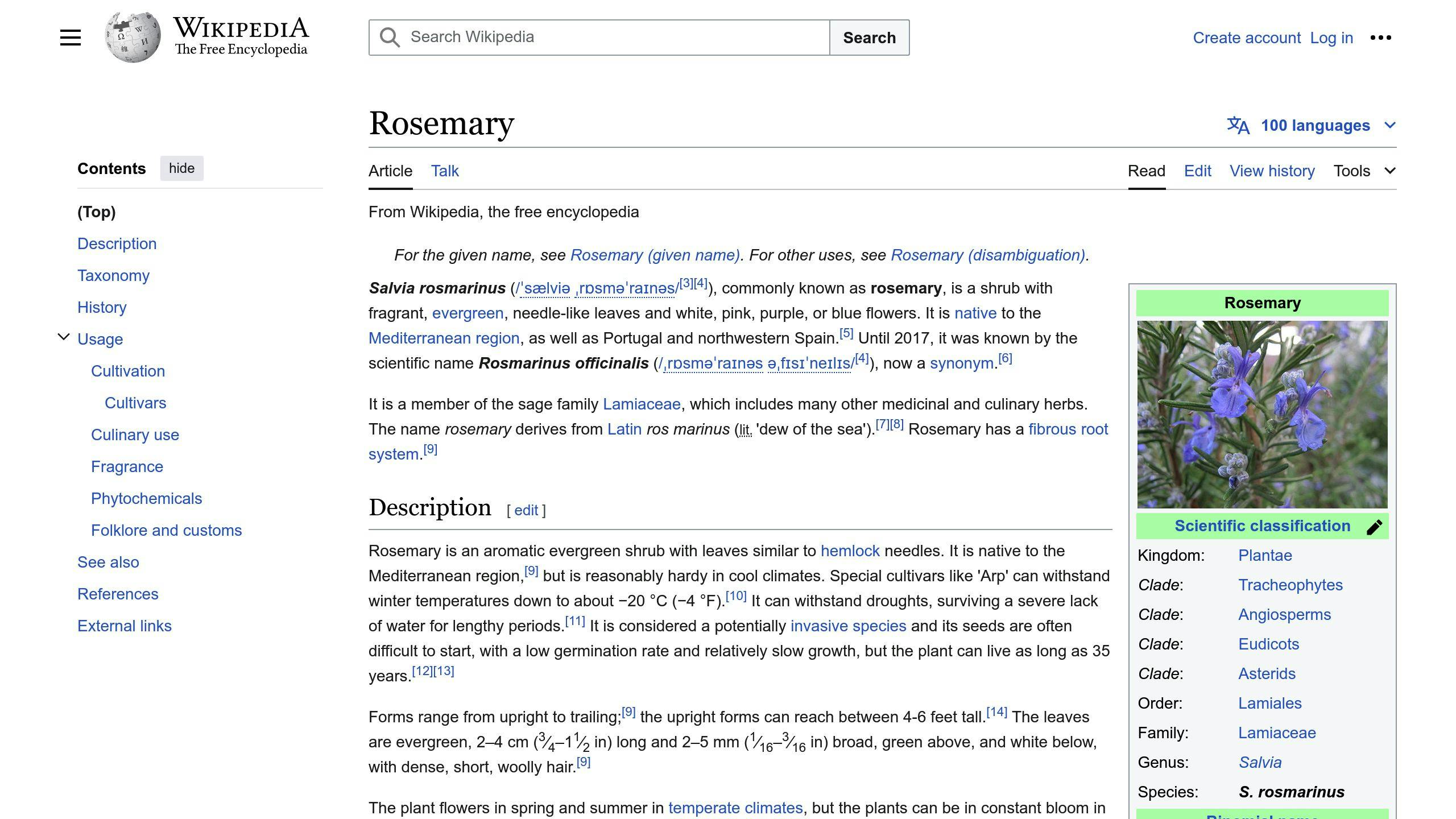
Key Compounds
- Rosmarinic Acid: A key compound that reduces inflammation by blocking inflammatory proteins like TNF-α and IL-6, and inhibiting NF-κB activation.
- Carnosic Acid: Another major compound that fights inflammation by targeting pathways involved in the inflammatory response.
- Carnosol: Shown to inhibit inflammatory responses and lower levels of TNF-α and IL-1β.
Potential Benefits for CFS/ME
- Reduced Inflammation: Rosemary’s compounds may help ease inflammation linked to CFS/ME, potentially relieving symptoms like fatigue, muscle pain, and brain fog.
- Improved Cognitive Function: Some studies suggest rosemary may enhance memory, concentration, and overall cognitive performance, which could benefit CFS/ME patients with cognitive impairments.
- Stress Relief: The aroma of rosemary has been linked to lower cortisol levels and anxiety, which could help manage stress and mood disturbances often experienced with CFS/ME.
Dosage Recommendations
There is no set dosage for using rosemary specifically for CFS/ME. However, some general recommendations include:
| Form | Dosage |
|---|---|
| Dried Rosemary | 1-4 grams daily, added to food or drinks |
| Rosemary Extract | 200-500 mg daily |
Start with a lower dose and gradually increase as tolerated.
Possible Side Effects and Precautions
Rosemary is generally safe when consumed in food amounts, but high doses may cause:
- Stomach discomfort or irritation
- Allergic reactions in some individuals
- Interactions with certain medications, such as blood thinners and diabetes medications
Consult with your healthcare provider before taking rosemary supplements, especially if you have any medical conditions or are taking medications.
8. Green Tea
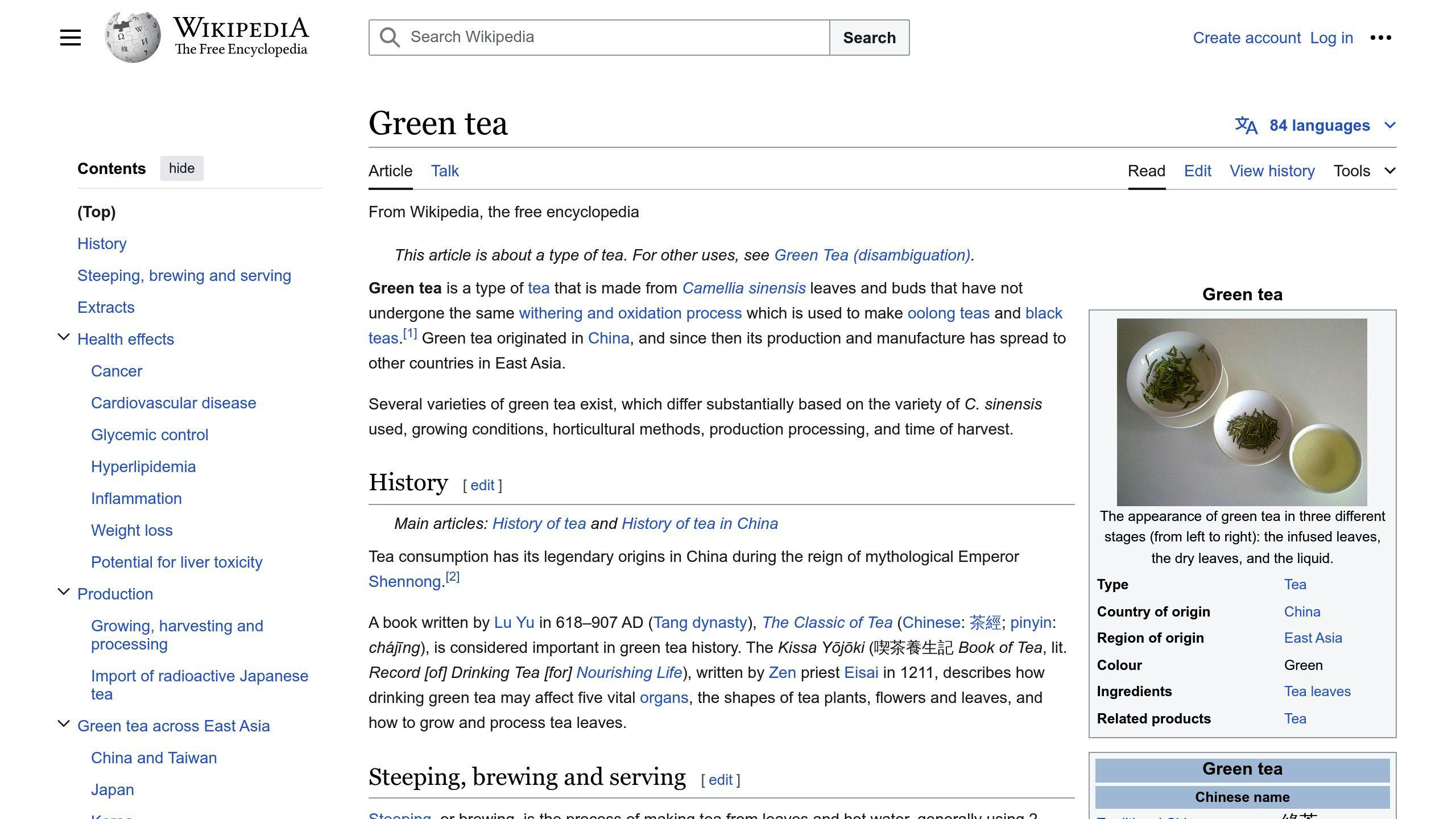
Key Compounds
Green tea contains these compounds that fight inflammation:
- Catechins: Epigallocatechin gallate (EGCG) and other catechins block enzymes and proteins that cause inflammation.
- Polyphenols: Flavonoids, tannins, and other polyphenols neutralize free radicals and regulate inflammatory pathways.
- L-theanine: This amino acid helps control the immune system and reduces inflammation.
How It May Help CFS/ME
| Benefit | Details |
|---|---|
| Reduced Fatigue | By lowering inflammation and oxidative stress, green tea’s anti-inflammatory effects may help ease the extreme tiredness of CFS/ME. |
| Improved Brain Function | The caffeine and L-theanine in green tea can enhance focus, alertness, and cognitive performance, potentially relieving brain fog linked to CFS/ME. |
| Pain Relief | The anti-inflammatory compounds in green tea may help reduce muscle and joint pain common in CFS/ME patients. |
Dosage
There is no set dosage for green tea in CFS/ME, but these amounts are generally recommended:
- Brewed Green Tea: 2-4 cups (240-480 ml) per day.
- Green Tea Extract: 300-500 mg per day, with 60-80% catechins.
Start with a lower dose and gradually increase as tolerated.
Side Effects and Precautions
- Green tea is safe in moderation, but high doses may cause headaches, insomnia, or digestive issues.
- Those with anxiety disorders or heart conditions should consult a doctor before consuming large amounts due to the caffeine content.
- Green tea may interact with certain medications like blood thinners, chemotherapy drugs, and antibiotics.
9. Ashwagandha

Key Compounds
Ashwagandha contains these compounds that help reduce inflammation:
- Withanolides: These compounds, like withaferin A, block inflammatory pathways and lower inflammatory proteins.
- Flavonoids: Compounds such as sitoindosides and acylsterylglucosides have antioxidant and anti-inflammatory effects.
- Alkaloids: Ashwagandha contains alkaloids like isopelletierine that may help reduce inflammation.
Potential Benefits for CFS/ME
Ashwagandha’s anti-inflammatory properties may help with some CFS/ME symptoms:
| Symptom | Potential Benefit |
|---|---|
| Fatigue | By reducing inflammation and oxidative stress, ashwagandha may help combat extreme tiredness. |
| Pain | The anti-inflammatory compounds may relieve muscle and joint pain common in CFS/ME. |
| Brain Fog | Ashwagandha has been shown to improve cognitive function, which could help with mental cloudiness or "brain fog." |
Dosage
While there is no set dosage for CFS/ME, these are typical recommendations for ashwagandha:
| Form | Dosage |
|---|---|
| Powder | 300-500 mg twice daily |
| Extract | 5-6 grams per day, with at least 5% withanolides |
Start with a lower dose and gradually increase as tolerated.
Side Effects and Precautions
Ashwagandha is generally well-tolerated, but some potential side effects include:
- Stomach discomfort
- Drowsiness
- Headaches
Consult a healthcare provider before taking ashwagandha, especially if you have any medical conditions or take medications, as it may interact with certain drugs.
10. Echinacea
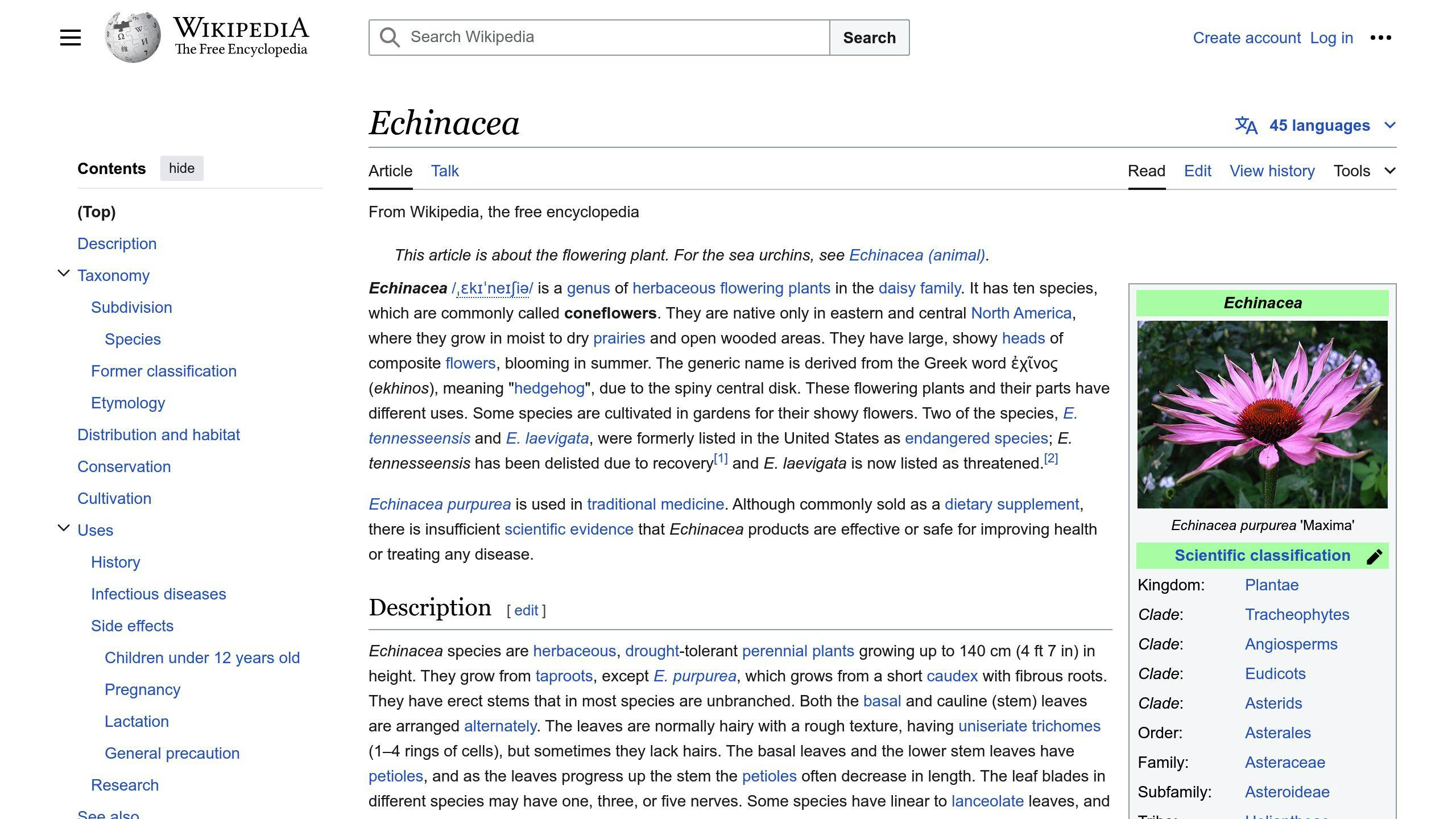
Key Compounds
- Alkylamides: Compounds like dodeca-2E,4E,8Z,10E/Z-tetraenoic acid isobutylamides help reduce inflammation by blocking enzymes and proteins that cause inflammation.
- Polysaccharides: Echinacea contains polysaccharides such as arabinogalactan that can lower inflammation by regulating immune responses.
- Caffeic Acid Derivatives: Compounds like chicoric acid and cichoric acid found in echinacea have antioxidant properties and can reduce inflammation.
Potential Benefits for CFS/ME
| Symptom | Benefit |
|---|---|
| Fatigue | Echinacea may help combat tiredness by lowering inflammation and oxidative stress. |
| Pain | The anti-inflammatory compounds may ease muscle and joint pain linked to CFS/ME. |
| Weakened Immunity | Echinacea has been shown to boost immune function, which could help manage CFS/ME symptoms related to immune system issues. |
Dosage
| Form | Dosage |
|---|---|
| Dried Herb | 300-500 mg three times per day |
| Liquid Extract | 2-3 mL three times per day |
| Standardized Extract | Follow label instructions, typically 300-600 mg per day |
Start with a lower dose and gradually increase as tolerated.
Side Effects and Precautions
- Generally well-tolerated, but may cause side effects like nausea, dizziness, or headaches in some people.
- Avoid during pregnancy or breastfeeding due to lack of safety data.
- Consult a healthcare provider before use, especially if you have autoimmune disorders or take medications, as echinacea may interact with certain drugs.
Herb Comparison Table
Here’s a simple table comparing the key details of the 10 anti-inflammatory herbs:
| Herb | Main Compounds | Potential Benefits for CFS/ME | Typical Dosage |
|---|---|---|---|
| Turmeric | Curcumin | May help reduce fatigue, pain, inflammation | 500-1,000 mg curcumin extract per day |
| Ginger | Gingerol, shogaol | May ease muscle pain, nausea, inflammation | 1-3 g dried root or 1.5-3 g extract per day |
| Cinnamon | Cinnamaldehyde | May regulate blood sugar, reduce inflammation | 1-6 g per day |
| Garlic | Allicin, diallyl sulfides | May support immunity, reduce inflammation | 600-1,200 mg aged garlic extract per day |
| Cayenne | Capsaicin | May relieve pain, improve circulation | 30-120 mg capsaicin per day |
| Black Pepper | Piperine | May enhance absorption of other herbs/supplements | 5-20 mg piperine per dose |
| Rosemary | Carnosic acid, rosmarinic acid | May reduce fatigue, pain, inflammation | 500-1,000 mg extract per day |
| Green Tea | Epigallocatechin gallate (EGCG) | May provide antioxidant, anti-inflammatory benefits | 3-5 cups per day or 300-500 mg extract |
| Ashwagandha | Withanolides | May reduce stress, fatigue, inflammation | 300-500 mg root extract per day |
| Echinacea | Alkylamides, polysaccharides | May boost immunity, reduce inflammation | 300-600 mg standardized extract per day |
Always check with your doctor before taking any new supplements, especially if you have a medical condition or take medications. Start with lower doses and gradually increase as tolerated.
Summary
Herbs with anti-inflammatory properties may help manage some symptoms of Chronic Fatigue Syndrome/Myalgic Encephalomyelitis (CFS/ME). While more research is needed, these herbs show potential benefits for reducing inflammation, fatigue, pain, and other issues linked to CFS/ME.
Key Herbs and Benefits
| Herb | Potential Benefits |
|---|---|
| Turmeric | May help reduce fatigue, pain, and inflammation due to curcumin |
| Ginger | May ease muscle pain, nausea, and inflammation due to compounds like gingerol |
| Cinnamon | May regulate blood sugar and reduce inflammation |
| Garlic | May support immunity and reduce inflammation due to allicin |
| Cayenne | May relieve pain and improve circulation due to capsaicin |
| Black Pepper | May enhance absorption of other herbs/supplements due to piperine |
| Rosemary | May reduce fatigue, pain, and inflammation due to rosmarinic acid |
| Green Tea | May provide antioxidant and anti-inflammatory benefits due to EGCG |
| Ashwagandha | May reduce stress, fatigue, and inflammation due to withanolides |
| Echinacea | May boost immunity and reduce inflammation due to alkylamides |
Using Herbs Safely
When adding these herbs to your routine:
- Start with small doses and gradually increase as tolerated
- Consult your healthcare provider, especially if you have medical conditions or take medications, as some herbs may interact with certain drugs or cause side effects
- Be patient and monitor your symptoms carefully
While herbs alone may not cure CFS/ME, they can be a helpful addition when combined with other lifestyle changes and treatments recommended by your doctor. With care and guidance, anti-inflammatory herbs could potentially provide relief for some CFS/ME symptoms and support overall well-being.
FAQs
What is the strongest natural anti-inflammatory herb?
Turmeric stands out as one of the most potent natural anti-inflammatory herbs. It contains curcumin, a powerful antioxidant that blocks NF-κB, a molecule that triggers inflammation. Numerous studies highlight turmeric’s remarkable ability to reduce inflammation.
What is the strongest natural anti-inflammatory supplement?
1. Omega-3 Fatty Acids
Omega-3 fatty acids found in fatty fish like salmon and tuna are among the top natural anti-inflammatory supplements. They help lower inflammation by reducing pro-inflammatory compounds in the body.
2. Curcumin
Curcumin, the active compound in turmeric, is a highly effective anti-inflammatory supplement. It works by blocking inflammatory pathways and reducing inflammation markers.
3. Green Tea
Green tea is rich in antioxidants like EGCG that can help reduce inflammation and protect against chronic diseases.
Other top anti-inflammatory supplements include:
| Supplement | Details |
|---|---|
| Ginger | Contains compounds like gingerol that fight inflammation. |
| Frankincense | Has anti-inflammatory properties that may help with conditions like arthritis. |
| Capsaicin (from chili peppers) | The compound that gives chili peppers their heat, capsaicin can help reduce inflammation. |
| Cat’s Claw | An herb traditionally used for its anti-inflammatory effects. |
Related posts
- 10 Nutrition Tips to Manage Chronic Fatigue Syndrome
- Anti-Inflammatory Diet for CFS/ME: Foods to Eat & Avoid
- Essential Fatty Acids for CFS/ME: Benefits & Role
- Antioxidants for CFS/ME: Benefits, Diet Tips



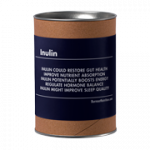
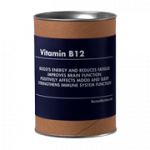

Leave a Reply